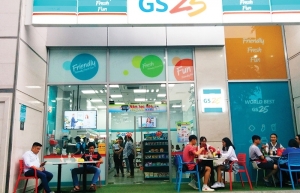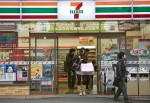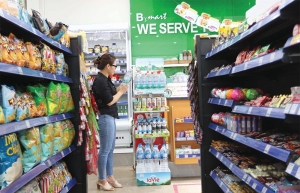Convenience stores seek survival opportunities
Could you share your insights on whether Vietnam is a promising market for international convenience store chains?
Vietnam presents a promising market for the expansion of convenience store chains, primarily due to globalisation. This phenomenon significantly impacts the work and lifestyle habits of residents.
 |
| Dr. Nguyen Minh Phuc, lecturer at the Department of Logistics and Supply Chain Management at the Foreign Trade University |
Specifically, living and working in high-rise offices and apartments, along with utilising public transportation, can lead individuals to gradually change traditional consumption habits in favour of more convenient options that better fit their daily lives and work routines.
This shift may alter decision-making priorities, with the need for time-saving solutions taking precedence over other factors. This presents a crucial opportunity for convenience store chains to gain a competitive advantage.
For international convenience store chains to leverage this opportunity in the Vietnamese market, they should demonstrate flexibility to adapt with the local context. Therefore, they should customise their standards for store locations, store scale, and product selections based on the actual needs of their target customer groups, particularly office workers and possibly students in major urban areas during working time.
Will the mass closure of 7-Eleven locations in North America have an impact on the Southeast Asian market in general, and Vietnam specifically?
The domino effect of particular goods or services normally occur when there is a significant and continuous decline in demand for them.
In case of Vietnam and developing countries in general, where consumer demand is currently undergoing changes due to various influencing factors mentioned earlier, convenience stores are recognised as a viable option to meet these evolving needs.
Therefore, I believe that the domino effect is unlikely to take place in the Vietnamese market specifically and in Southeast Asia more broadly.
What direction should these convenience store chains take in the region, especially considering the ongoing increase in retail consumption indices?
FamilyMart has entered and exited Thailand, while 7-Eleven has done the same in Indonesia, one of the top target countries for international convenience store operators due to its growing middle class and a population of over 270 million. Despite significant ambitions in the Chinese market, Lawson has struggled against the domestic chain Meiyijia.
One of the key characteristics of international chains is standardisation. However, it is essential to approach standardisation with flexibility rather than rigidity. This is because local factors and elements significantly influence the consumption decisions of residents.
While globalisation is a prevailing trend, its effects cannot be immediate or universally impactful. Therefore, localisation poses a critical question for foreign convenience store chains. If they can effectively address this issue, it will present opportunities and guidance for establishing and developing their operations.
Conversely, failing to do so may lead to significant challenges to their survival in new markets.
 | Convenience stores facing target hurdles In contrast to expectations, owners of many foreign convenience stores in Vietnam may not be able to meet their ambitious targets in carving a firm niche in the domestic market, due in part to fierce competition from the biggest players. Kim Oanh reports. |
 | 7-Eleven announces closure of 444 stores The world's largest convenience store chain and a Japanese icon, 7-Eleven, has decided to close 444 stores and shift its business model due to poor performance and inflationary pressures, following a $47 billion acquisition offer last week. |
 | Convenience stores remain aggressive The convenience store market in Vietnam is highly competitive, with renowned chains expanding aggressively despite facing financial challenges. |
What the stars mean:
★ Poor ★ ★ Promising ★★★ Good ★★★★ Very good ★★★★★ Exceptional
Related Contents
Latest News
More News
- Masan Consumer names new deputy CEO to drive foods and beverages growth (February 23, 2026 | 20:52)
- Myriad risks ahead, but ones Vietnam can confront (February 20, 2026 | 15:02)
- Vietnam making the leap into AI and semiconductors (February 20, 2026 | 09:37)
- Funding must be activated for semiconductor success (February 20, 2026 | 09:20)
- Resilience as new benchmark for smarter infrastructure (February 19, 2026 | 20:35)
- A golden time to shine within ASEAN (February 19, 2026 | 20:22)
- Vietnam’s pivotal year for advancing sustainability (February 19, 2026 | 08:44)
- Strengthening the core role of industry and trade (February 19, 2026 | 08:35)
- Future orientations for healthcare improvements (February 19, 2026 | 08:29)
- Infrastructure orientations suitable for a new chapter (February 19, 2026 | 08:15)

 Tag:
Tag:


















 Mobile Version
Mobile Version